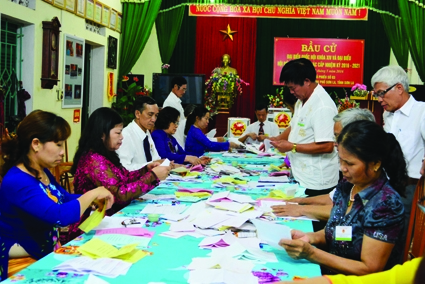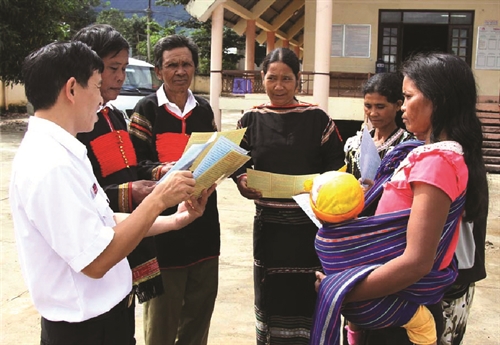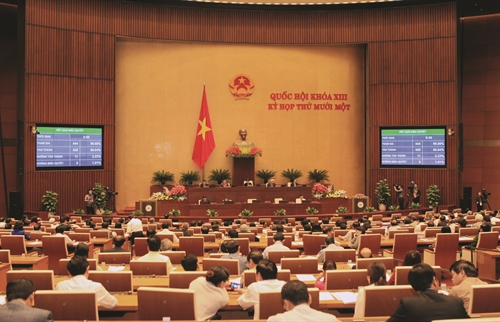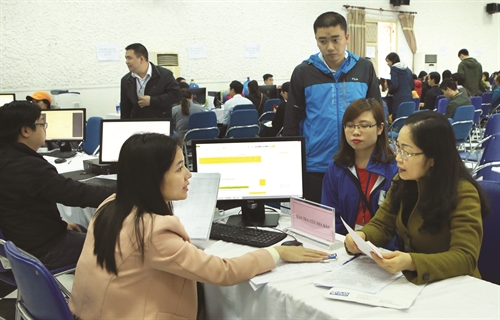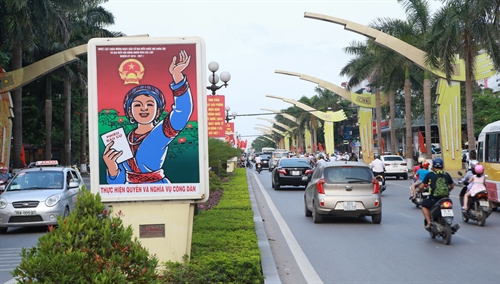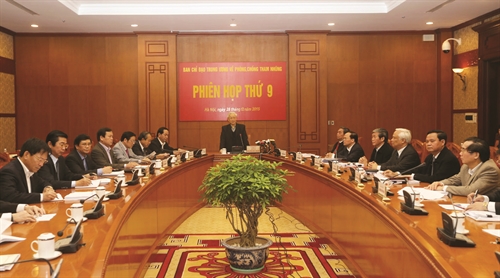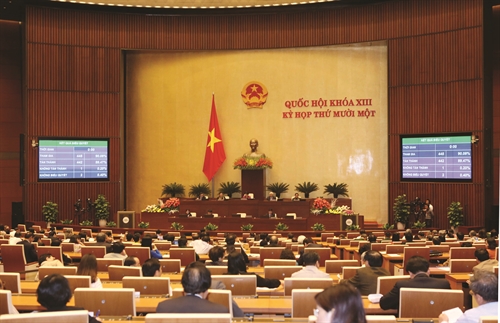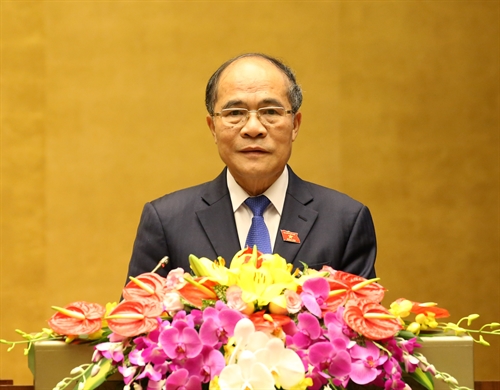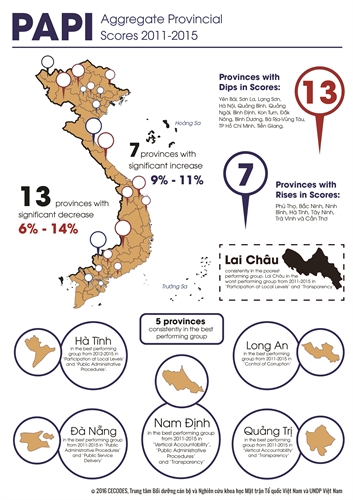Deputy Foreign Minister Le Hoai Trung
Revising the definition of treaty
The revision of the definition of a treaty is a basic new point affecting various contents of the amended Law on Treaties. The new definition of a treaty[1] is consistent with the 1969 Vienna Convention on the Law of Treaties and the practice of conclusion of treaties in almost all countries in the world. Accordingly, documents that fully meet the criteria of a treaty must be negotiated and concluded according to the process established in the Law. Political declarations and commitments that do not create rights and obligations in accordance with international law will not be regarded as treaties, and they will be concluded according to general regulations on management of external activities.
Agreements and commitments on borrowing of foreign loans, if signed in the name of the State or Government of Vietnam with a foreign party such as a foreign state or government, the World Bank or the Asian Development Bank, will still be regarded as treaties and governed by this Law. However, specific loan agreements signed in the name of the Government with foreign banks that contain a clause on application of the law of the lending or financing country will no longer be considered treaties. Their conclusion will be implemented according to the process and procedures stipulated in the Law on Management of Public Debts.
In order to expedite the conclusion of a number of types of treaty in response to external relation and integration requirements, the new Law contains a chapter on the summary order and procedures applicable to the negotiation, signing, revision and extension of some types of treaties. The Law specifies two forms of summarization: process shortening (allowing the concurrent negotiation and signing) and period and dossier shortening. However, the summary order and procedures will not be applied to treaties that fall within the competence of the National Assembly.
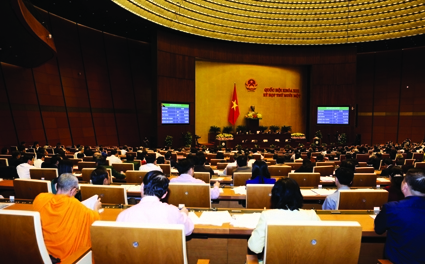 |
| National Assembly deputies vote to pass the Law on Conclusion of, Accession to, and Implementation of Treaties __Photo: Phuong Hoa/VNA |
Concretizing new provisions of the Constitution
In concretizing the new provisions of the 2013 Constitution, the 2016 Law on Treaties adds and amends provisions on the competence and order and procedures for exercising the constitutional competence of the National Assembly, President, Government and Prime Minister in the area of treaties. It also respects and contributes to the exercise and protection of human rights, citizens’ rights and obligations, and the democratic and rule of law principles embodied in the Constitution.
Particularly, the Law clearly defines “treaty on human rights and citizens’ fundamental rights and obligations” and “treaty on the membership of Vietnam in important international and regional organizations” as mentioned in Clause 14, Article 70 of the Constitution.
According to the Law, the National Assembly will ratify and decide on the accession to “treaties that change, restrict or terminate human rights and fundamental rights and obligations of citizens prescribed by laws and resolutions of the National Assembly.” This provision aims to distinguish these treaties from those on cooperation in various specialized fields such as mutual legal assistance, extradition and transfer of persons sentenced to prison, adoption, and crime prevention and combat. The legislative body will also have the same competence over treaties on the establishment of or participation in international or regional organizations if such participation or withdrawal from these organizations affects the fundamental national policies on foreign affairs, national defense, security, socio-economic development and monetary issues. These fundamental policies fall within the competence of the National Assembly prescribed in the Constitution.
In order to implement Article 12 of the Constitution: “The Socialist Republic of Vietnam… observes the United Nations Charter and treaties to which the Socialist Republic of Vietnam is a contracting party,” the 2016 Law on Treaties adds some provisions aiming to increase the effectiveness of implementation of treaties. It stipulates that an agency that proposes the conclusion of a treaty must prepare an implementation plan right from the time of making the proposal and submit the plan to the Prime Minister for approval within 15 days after receiving the notice from the Ministry of Foreign Affairs of the treaty’s binding on Vietnam. It must also devise a roadmap and specific measures for the treaty implementation, and propose or issue amendments to relevant legal documents. It will also propose to the Prime Minister measures to direct the implementation of the treaty and protect Vietnam’s rights and interests in case the treaty is violated by the foreign contracting party.
In addition, the Law on Treaties has new provisions on consultation of representatives of entities that are directly affected by a treaty in the course of negotiation of such treaty. From now on, when negotiating a treaty, state agencies will have to consult these entities through their representative bodies.
In order to meet the need of organizations and individuals prescribed in the law on access to information or serve legal proceedings, the Law on Treaties provides the supply of copies of treaties to which Vietnam is a contracting party preserved at the Ministry of Foreign Affairs and the publication of their full texts in the Official Gazette of the Socialist Republic of Vietnam, and on the e-portals of the ministries or sectors that have proposed the conclusion of the treaties and the database on treaties created and operated by the Ministry of Foreign Affairs.
The above provisions of the amended Law on Treaties reflect the democracy, publicity, transparency and rule of law in conformity with the Constitution and ensure consistency with the current legal system. The Law will effectively serve the country’s active and proactive international integration process, guaranteeing the national interests.-

